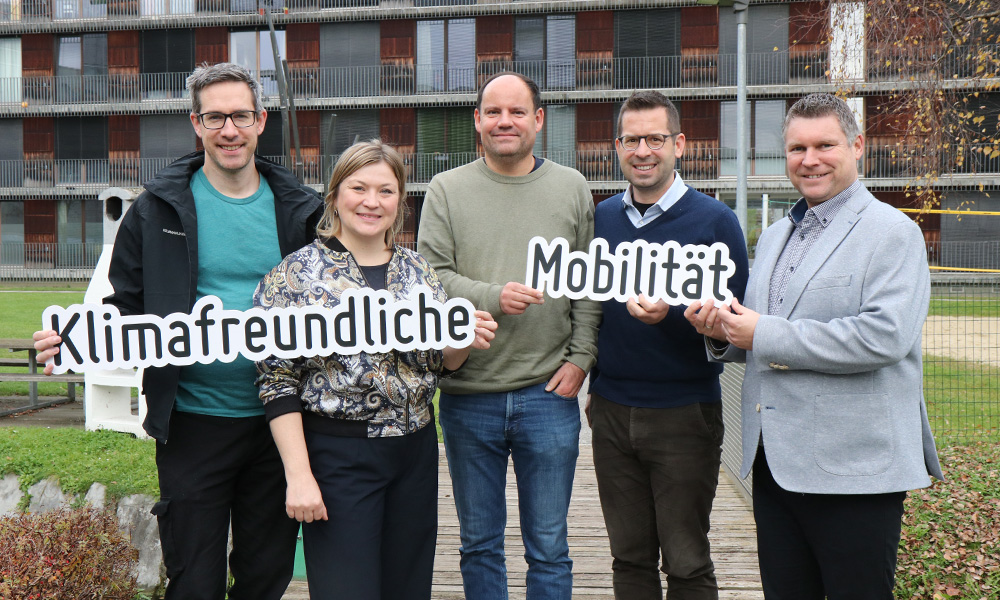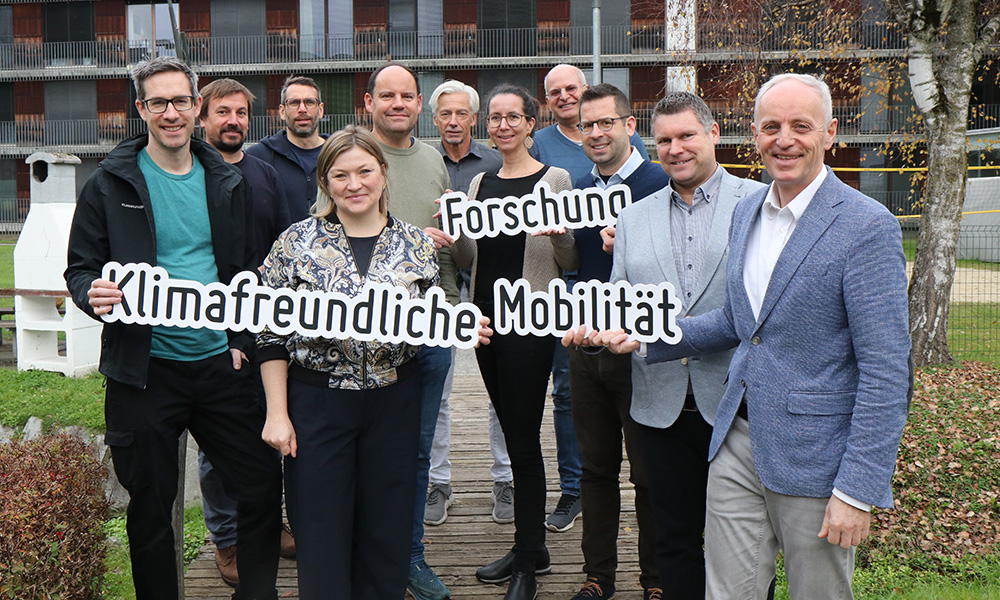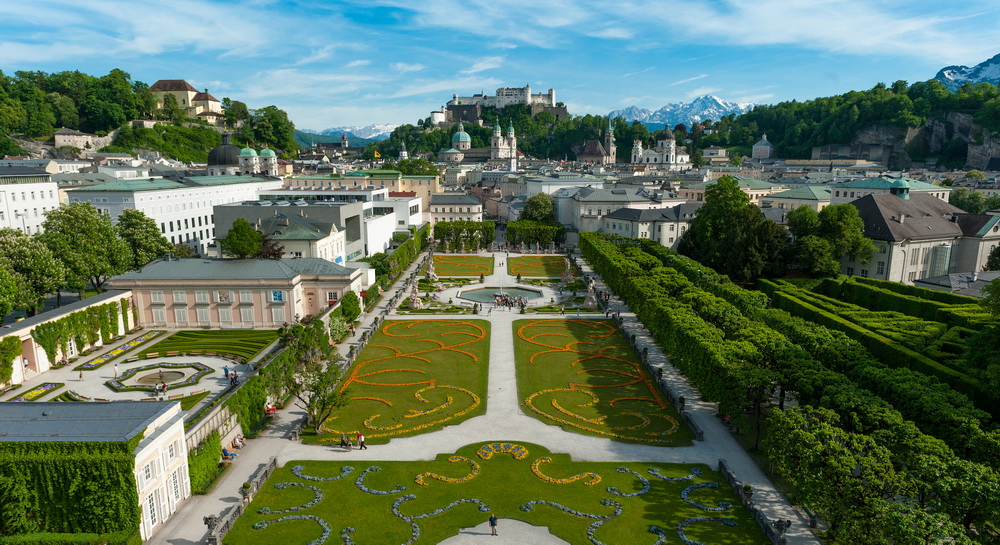
Know-how and innovative solutions for climate-friendly mobility in Salzburg
Climate-friendly mobility and sustainable transport solutions are the challenges that many cities face. In Salzburg, three leading research institutions located at the Science City Itzling — the Research Studio iSpace, the University of Salzburg, and Salzburg Research — are addressing this topic from different perspectives. On November 19th, City Councillor Anna Schiester and Deputy Mayor Kay-Michael Dankl learned about the researchers’ expertise and future-oriented approaches to making mobility more sustainable, efficient, and liveable.
The city of Salzburg and the local research institutions benefit mutually: on the one hand, the city serves as a “real laboratory environment” and experimental setting for researchers to pilot and test future-oriented approaches. On the other hand, the city has competent partners at its side with innovative methods and objective data material for sustainable decisions.
Research Studio iSpace presented specific local applications that shed light on the planning and location prospects of mobility projects. Topics such as the optimal mobility connection of locations through route analyses, interactions with the construction infrastructure, and commuter flows play a central role here. For example, commuter corridors are analyzed as well as bus lanes are optimized with the help of the Travel Time Index in collaboration with Salzburg Research. The aim is to further develop the public space and use data as a factual basis for emotional debates in order to make public transport more continuous and efficient.
The Department of Geoinformatics/Z_GIS of the University of Salzburg contributed its expertise in academic research. It combines different aspects of mobility and integrates spatial planning, traffic psychology, and traffic planning in systematic approaches. Researchers showed how behavior and habits influence mobility, and what role targeted “nudges” and major lifestyle changes can play in this. Health was identified as a strong motivator for sustainable everyday mobility, as well as the use of digital twin was discussed.
Salzburg Research is actively shaping the mobility transition in the Mobility & Transport Analytics research line by implementing the digital transformation of mobility. Practical approaches and technologies successfully used in the mobility system include intelligent traffic control using historical and real-time traffic data, digitalization of traffic measures including consideration of unplanned as well as planned incidents such as roadworks, congestion analyses, networking and automated transport over the last mile. Particular attention was paid to digital communication using C-ITS (Cooperative Intelligent Transport Systems), which, among other things, supports advanced traffic light prioritization as well as measures to protect vulnerable road users.
The research facilities at the Science City Itzling are optimally integrated and offer interdisciplinary research in close coordination with each other. The combination of planning expertise, system know-how, simulation and data analysis creates the basis for future-oriented decisions and mobility solutions that make a significant contribution to shaping a climate-friendly Salzburg.








